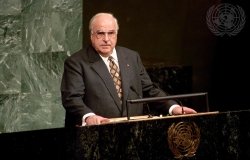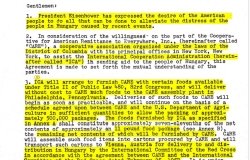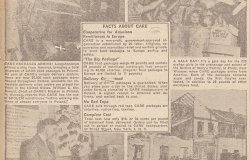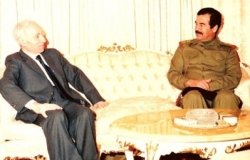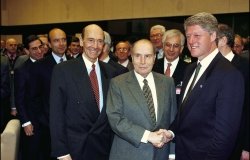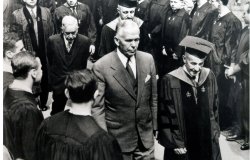
A blog of the History and Public Policy Program
Chinese and American Misjudgment and the Making and Prolonging of the Korean War
Beijing and Washington both made critical misjudgments during the Korean War, misjudgments that turned the conflict into a prolonged Chinese-American confrontation.
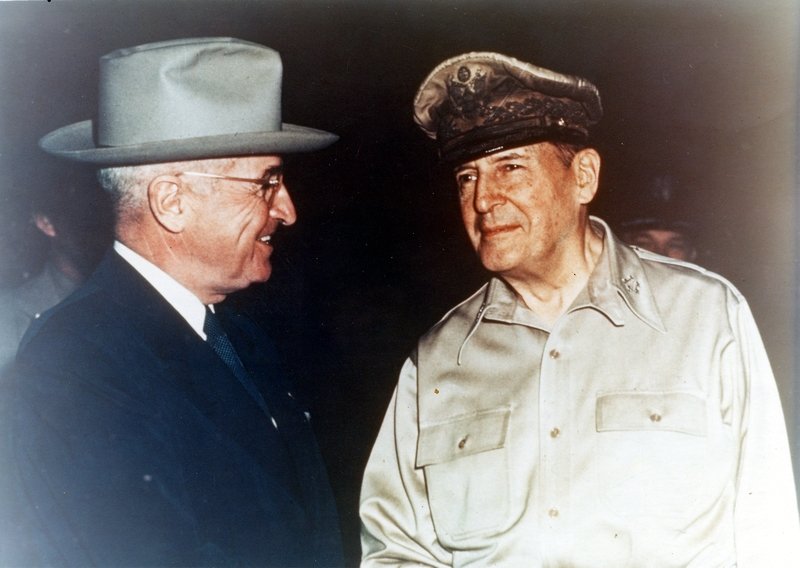
Harry S. Truman Library & Museum, Accession Number 69-1199.
At the seventieth anniversary of the Korean War, I would like to highlight the critical misperceptions and misjudgment by both Beijing and Washington in the making of the Korean War and how the conflict evolved into a prolonged Chinese-American confrontation.
The first such misjudgment was made by Stalin and Mao Zedong in the wake of US secretary of state Dean Acheson’s January 1950 statement excluding Korea from America’s western Pacific defense perimeter. At the end of January 1950, Stalin, for the first time in many months, gave Kim Il Sung the green light to use military mean to unify the Korean peninsula. In March, during a meeting between Mao, Zhou Enlai, and Ri Ju-yon, North Korea’s ambassador to China, Mao stated: “The unification of Korea cannot be realized in a peaceful way; the unification of Korea must be realized by using force. As for the Americans, do not fear them. The Americans will not start the third world war for such a small place.”
When Mao made this statement, he was mindful that Chinese military planners had already concluded that, at least for five years, it was unlikely for the United States to involve militarily in a revolutionary civil war in East Asia. Obviously, this was a misjudgment that contributed to the outbreak of the Korean War.
The Americans also had their own share of critical misperception and misjudgment. In October 1950, when the UN/US troops carried out an sweeping counteroffensive after the Inchon landing, approaching and, then, crossing the 38 parallel, Zhou Enlai used explicit language to warn Washington that if UN/US forces’ advance in Korea continued, “We will intervene.”
However, US policymakers and military planners dismissed Zhou’s warnings as “bluffing.” This was not due to an intelligence failure. Actually, since late summer, US intelligence services had known well about Chinese military deployments along the Yalu River. Yet US policymakers did not take this information seriously. They paid more attention to Soviet military movement (or lack of it) in the Far East. When they found little evidence of Soviet willingness to intervene in the war, they concluded that it was less likely that a full-scale Chinese intervention in Korea would occur.
In retrospect, Washington’s policymakers were deeply convinced that China, so backward and so weak, would not dare to fight a war against powerful America. Mao was genuinely offended. Compared with American hostility toward China, what was more furious and enraging to Mao and his fellow Chinese leaders was the perceived American disdain of China and the Chinese as backward and, indeed, inferior. It is little wonder that Mao, in addition to his other goals, hoped to use a Chinese victory in Korea to “beat American arrogance.”
But Mao’s desire turned out to be the source of another critical misperception and misjudgment, on his part, that prolonged the Chinese-American war in Korea.
China’s massive intervention in Korea caught General Douglas MacArthur by total surprise. By early 1951, the situation on the Korean battlefield had reversed. The Chinese troops were on the offensive with the aim of “kicking the Americans into the Pacific Ocean.” In mid-January, 13 non-Western countries headed by India proposed an immediate ceasefire in Korea, which would be followed by foreign troops withdrawing from Korea and the convening of a four-power (the Soviet Union, the United States, Britain, and China) meeting to settle outstanding Far East issues, including the Taiwan question and the PRC’s representation in the UN.
In hindsight, this proposal might have offered Beijing a golden opportunity to end the war at the right moment. By then, although the Chinese had made substantial gains on the battlefield, their offensive potential had been exhausted due to their overextended supply lines, lack of air support, and heavy casualties. An immediate ceasefire would have allowed the Chinese forces to hold in place and, if the ceasefire failed, offered them a desirable break to rebuild their offensive momentum. Further, the Chinese acceptance of this proposal would certainly have placed Washington in a “diplomatic dilemma” (in Acheson’s words): supporting the proposal could result in “the loss of the Koreans and the fury of Congress and the press” while rejecting it could lead to “the loss of our majority and support in the United Nations.”
Washington made the smart decision to support the proposal, calculating that Beijing would reject it. The Chinese, as expected, indeed turned down the proposal. Mao and his comrades were overenthusiastic about changing China’s “glorious victory” in Korea into a powerful source of excessive domestic mobilization on Mao’s terms. What they got, however, was a bloody and costly Chinese-American war in Korea that rage on for another two and a half years.
In addition to its profound international and peninsula origins, the Korean War was made and prolonged by misperceptions and misjudgment. This is among the most salient lessons to be learned from this history, especially as US-China relations are today at another critical historical juncture replete of possibilities of fatal misperceptions and misjudgments.
About the Author
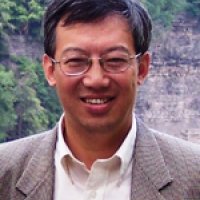
Chen Jian
Distinguished Global Network Professor of History at New York University Shanghai/NYU; Hu Shih Professor of History Emeritus, Cornell University

History and Public Policy Program
The History and Public Policy Program makes public the primary source record of 20th and 21st century international history from repositories around the world, facilitates scholarship based on those records, and uses these materials to provide context for classroom, public, and policy debates on global affairs. Read more

Cold War International History Project
The Cold War International History Project supports the full and prompt release of historical materials by governments on all sides of the Cold War. Through an award winning Digital Archive, the Project allows scholars, journalists, students, and the interested public to reassess the Cold War and its many contemporary legacies. It is part of the Wilson Center's History and Public Policy Program. Read more

North Korea International Documentation Project
The North Korea International Documentation Project serves as an informational clearinghouse on North Korea for the scholarly and policymaking communities, disseminating documents on the DPRK from its former communist allies that provide valuable insight into the actions and nature of the North Korean state. It is part of the Wilson Center's History and Public Policy Program. Read more
